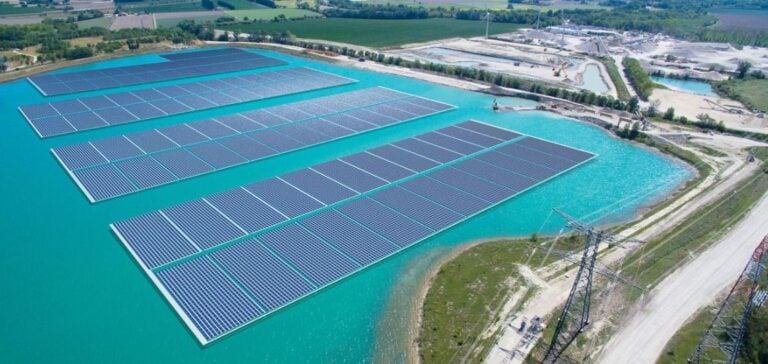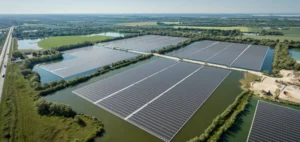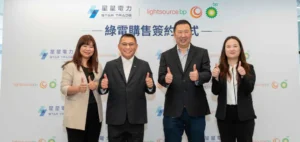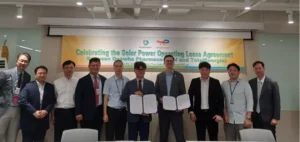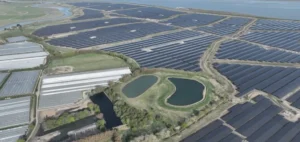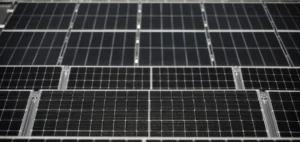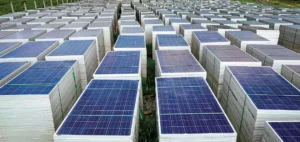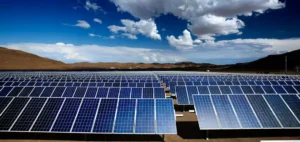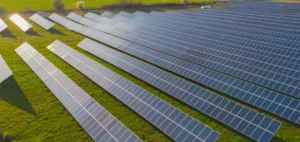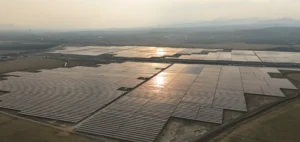Masdar and SOCAR, Azerbaijan’s national oil company, have launched three major solar and wind power projects in Azerbaijan, with a total capacity of 1 gigawatt (GW). The move is part of a long-term strategic partnership between Masdar and Azerbaijan, aimed at supporting the country’s ambitions to generate 30% of its energy capacity from renewable sources by 2030.
The opening ceremony was attended by HE Ilham Aliyev, President of Azerbaijan, and HE Dr Sultan Al Jaber, UAE Minister of Industry and Advanced Technologies, President of Masdar and President of COP28. Also present were SE Parviz Shahbazov, Azerbaijan’s Minister of Energy, SE Mikayil Jabbarov, Azerbaijan’s Minister of Economy and Chairman of SOCAR’s Supervisory Board, and Mohamed Jameel Al Ramahi, CEO of Masdar. Baku thus continues its energy transition.
Three major projects to speed up the transition
The three projects launched include the 445MW solar photovoltaic project at Bilasuvar, the 315MW solar photovoltaic project at Neftchala and the 240MW onshore wind project at Absheron-Garadagh. The investment agreements for these projects were signed in October 2023, followed by the signing of power purchase agreements, grid connection agreements and land lease agreements. On the sidelines of Baku Energy Week, Masdar and SOCAR also signed a shareholding agreement for the three projects.
These initiatives will support Azerbaijan’s energy diversification, stimulate new industries, create jobs and promote sustainable economic growth. A key pillar of the UAE’s historic consensus is the goal of tripling renewable energy capacity by 2030.
Significant environmental and economic benefits
Annual electricity production of 2.3 billion kWh will save more than 500 million cubic metres of natural gas and prevent the emission of more than 1 million tonnes of carbon. These plants will make a major contribution to sustainable development in Azerbaijan.
This kick-off follows Masdar’s completion of the 230MW Garadagh solar power plant in October 2023, the first independent solar project based on foreign investment in Azerbaijan and the largest solar power plant in the region at the time of its inauguration.
Masdar, the UAE’s clean energy champion, is targeting a renewable energy capacity portfolio of 100GW by 2030, supporting the goal set out in the UAE Consensus of tripling global renewable energy capacity by the end of this decade, while aiming to become a leading producer of green hydrogen by the same timeframe.
This major step forward in the development of renewable energies in Azerbaijan testifies to the commitment of the country and its strategic partners to a sustainable energy transition. It paves the way for future large-scale projects that will transform the region’s energy landscape, bringing significant environmental and economic benefits for generations to come.

